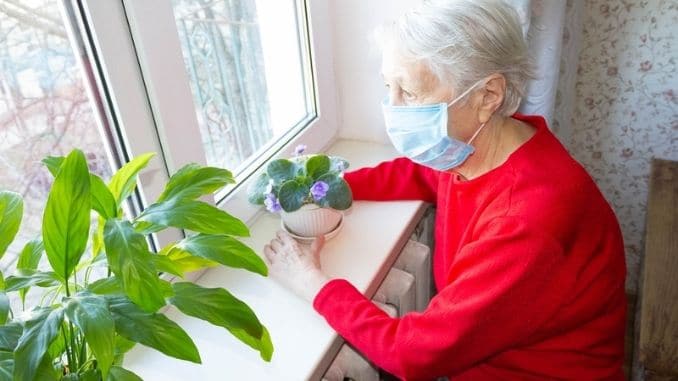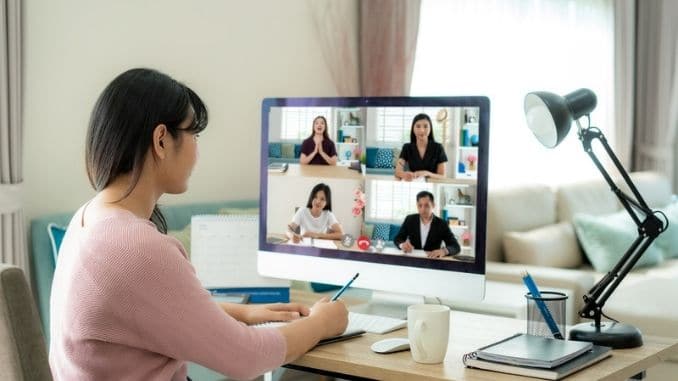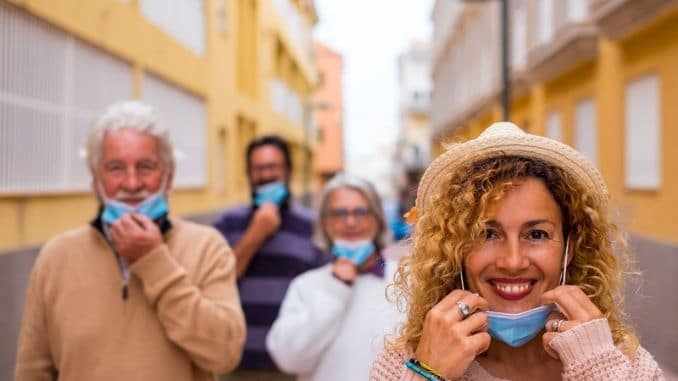COVID-19 has resulted in large, widespread changes across the globe. Almost everyone worldwide has been affected by the coronavirus outbreak in some capacity or another. Each individual has been impacted in a unique way, and each person’s mental health has been challenged differently.
Taking care of your mental health is always important, but during times of uncertainty, such as with COVID-19, taking the steps to keep yourself mentally healthy is of the utmost importance.
Fear and anxiety are common reactions to any situation that is out of one’s control, and when the result is potential sickness and death, fear and anxiety are further magnified. These feelings can be overwhelming, and if left unchecked, can negatively impact our lives and the lives of those around us.
Now more than ever, taking care of your mental well-being is an integral part of keeping yourself and those you love healthy. Learning to cope with stress and anxiety will make you and your community stronger. Social distancing, though a necessary intervention to stop the spread of COVID-19, can make many people feel isolated and alone. Each individual will react differently to being physically separated from those around them. You may not notice much of a change, or conversely, you might experience intense feelings of loneliness, disconnection, and even depression.
Social distancing, though a necessary intervention to stop the spread of COVID-19, can make many people feel isolated and alone. Each individual will react differently to being physically separated from those around them. You may not notice much of a change, or conversely, you might experience intense feelings of loneliness, disconnection, and even depression.
Individuals may experience feelings of fear and worry over their health, others’ health, their financial situation, their job, or other services they rely on. You may notice changes in your sleeping, eating patterns, or mental wellbeing during a pandemic.
For some people, this may result in oversleeping and overeating, while others might not get enough sleep or nutrition. Individuals may find themselves consuming more alcohol or tobacco, or turning to other drugs and forms of escapism.
Whatever your experience is, there is no right or wrong way to react to stress.
The silver lining is that we are capable of taking intentional actions to cope with our stress in a healthy way. Read on to find out how you can take control of your mental health during the pandemic.
What You Can Do:
- Take Care of Yourself: If you are a caregiver, it is easy to forget to take care of yourself while you are busy taking care of those who rely on you. You may have heard the expression, ‘You can’t pour from an empty cup.’ If you neglect your own health and mental well-being for too long, you will be unable to care for others. Make time to go for a walk, listen to music, do yoga, meditate, create, or do whatever helps you recharge. Ask for help when you need it.
- Stay Informed: In this day and age, information travels quickly on the internet and within communities. There is a plethora of misinformation that can lead you to make poor decisions about your health. Make sure to seek out resources such as government websites to ensure you are up to date on the latest, most accurate information.
- Connect Safely With Others: While you may not be able to get together in person with all of your friends and family, we are lucky to have the technology needed to connect in many other ways. Make an effort to video call or phone call those who matter to you. Plan weekly calls or call someone out of the blue – you are sure to make their day. Ensuring mental wellbeing during a pandemic is vital. This may be helping with grocery shopping or just a daily check-in for someone who may be struggling. Helping others can foster a sense of control over our lives and improve our own mental well-being. Ask for help when you need it, too.

- Develop a Routine: When our work or school schedules are disrupted, it is easy to fall into destructive patterns that do not support our mental health. We may overeat, oversleep, or even become lax with simple things like maintaining personal hygiene. You will feel accomplished and have a stronger sense of purpose with a routine.
- Stay Active: With gyms, studios, and some outdoor spaces closed, it is easy to give up on your fitness routine. If you have fallen out of your routine or have never had one, now is the perfect time to start. If it is safe to walk in your area, you can start with 15 minutes of walking each day. Slowly increase your time, or even try jogging. Strive for 150 minutes of exercise weekly, but doing something is better than nothing.

- Be Present: In times of fear and anxiety, the tendency is to spend most of your time worrying about the future. Or, with more time alone, you may be reliving past experiences more than is helpful. The practice of being present is the remedy. Practicing meditation, yoga, or simply taking a mindful walk can all bring you into the present moment.

In an unprecedented time such as the COVID-19 pandemic, everyone is learning as they go. Remember to be compassionate towards yourself and others as you navigate these difficult times.
Finding ways to support your mental well-being is a priority in order to keep yourself and those around you strong. We're here to help, providing comforting resources for you to find useful information.
In this incredible bundle, you’ll receive every single tool you need to quickly improve your brain health. Learn more here.
Ready to supercharge your brain health? Join our 14 Day Brain Health Quick Start Program now! Take the first step towards boosting your cognitive abilities, enhancing focus, and maximizing mental clarity. Don't wait any longer to optimize your brainpower! Join us today and embark on your journey to a sharper mind. Click the link below to get started!





